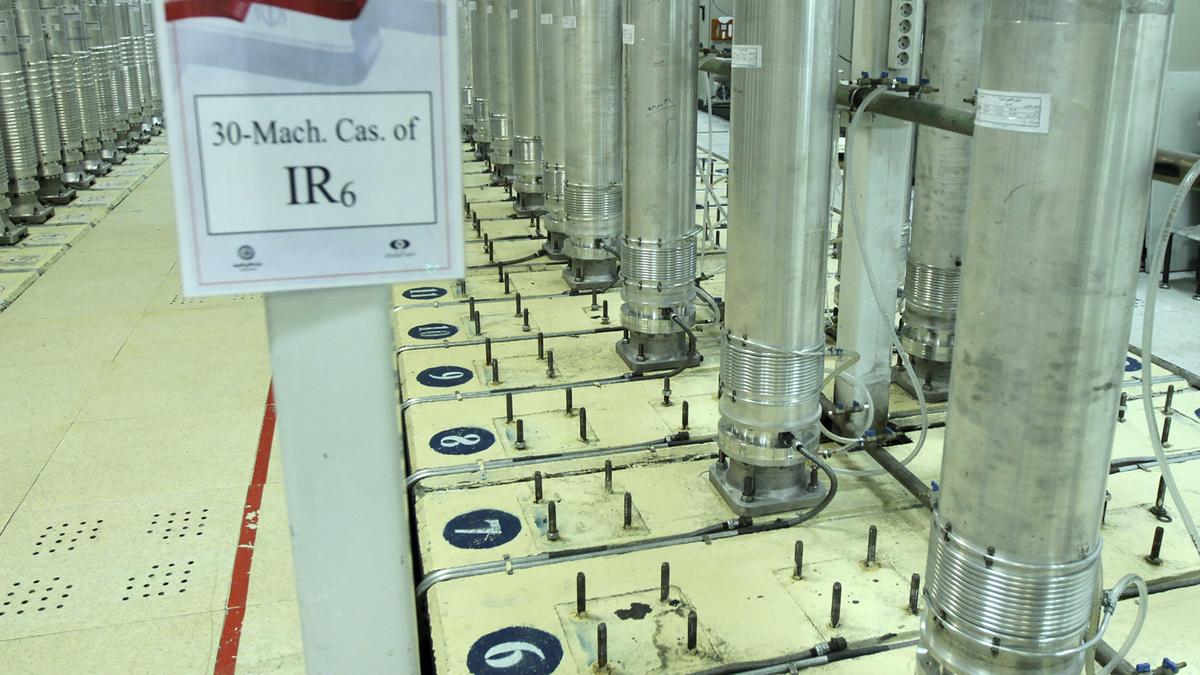This photo released by the Atomic Energy Organization of Iran on Tuesday, Nov. 5, 2019 shows centrifuge machines at the Natanz uranium enrichment facility in central Iran. Iran announced on Monday that it had begun gas injection into a 30-machine cascade of advanced IR-6 centrifuges at the Natanz complex. file | Photo Credit: AP
Iran said on Friday (Nov 22, 2024) it would launch a series of “new and advanced” centrifuges in response to a resolution adopted by the IAEA that condemned Tehran for a lack of cooperation with the agency.
“The head of the Atomic Energy Organization of Iran issued an order to take effective measures, including launching a significant series of new and advanced centrifuges of various types.”
A similar condemnation motion was brought to the International Atomic Energy Agency’s 35-nation board in June by Britain, France, Germany and the United States.
But it comes with rising tensions over Iran’s nuclear program, with critics fearing Tehran is attempting to develop nuclear weapons – a claim the Islamic republic has repeatedly denied.
The resolution – which China, Russia and Burkina Faso voted against – had 19 votes in favour, 12 abstentions and Venezuela abstaining, the two diplomats said. AFP,
Confidential resolution witnessed by AFP says it is “essential and urgent” for Iran to “act to meet its legal obligations”.
The text also calls on Tehran to provide a “technically credible explanation” for the presence of uranium particles found at two undeclared locations in Iran.
Additionally, Western powers are demanding the IAEA issue a “comprehensive report” on Iran’s nuclear efforts by “spring 2025 at the latest.”
The proposal comes as IAEA chief Rafael Grossi returned last week from a trip to Tehran, where he appeared to have made progress.
During the visit, Iran agreed to the IAEA’s demand to enrich its sensitive stockpile of weapons-grade uranium to 60% purity.
In 2015, Iran and world powers reached an agreement that included reducing international sanctions on Tehran in exchange for curbs on its nuclear program and guarantees that Tehran cannot develop nuclear weapons – some Something he has always refused to do.
But the United States unilaterally withdrew from the deal in 2018 under then-President Donald Trump and reimposed economic sanctions, causing Iran to begin backtracking on its commitments.
Tehran has since significantly reduced its cooperation with the agency by disabling monitoring equipment that monitors its nuclear program and blocking UN inspectors.
At the same time, it has also increased its nuclear activities, including increasing the stockpile and enrichment levels of enriched uranium to 60 percent.
This level is still below the 90 percent plus level required for a nuclear weapon, but well above the 3.67 percent limit agreed upon in 2015.
published – November 22, 2024 12:53 PM IST
